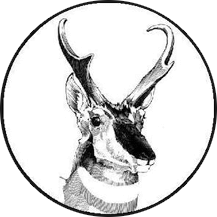 The Albert R. and Alma Shadle Fellowship is awarded to a graduate student in recognition of current accomplishments and future potential in mammalogy. The 2021 recipient of the Albert R. and Alma Shadle award is Savannah Bartel of the University of Wisconsin.
The Albert R. and Alma Shadle Fellowship is awarded to a graduate student in recognition of current accomplishments and future potential in mammalogy. The 2021 recipient of the Albert R. and Alma Shadle award is Savannah Bartel of the University of Wisconsin.
Savannah Bartel has been an active member of ASM since her first year of graduate school in 2017. She was a 2018 recipient of an ASM Grants-in-Aid of Research award that funded the fieldwork for 3 of her dissertation chapters. She has presented her research at every ASM meeting since her first meeting in 2018. She is also a member of ASM's Public Education committee. With the assistance of GIAR and Shadle Fellowship funding, she has led several papers on mammal behavior and plant-mammal interactions published in journals like Behavioral Ecology, Ecosphere, and Ecology Letters. She has also coauthored papers published in journals like Proceedings of the National Academy of Sciences and Trends in Ecology and Evolution. She is very passionate about mentoring the next generation of mammalogists and has mentored 9 undergraduate students.
Savannah's dissertation research broadly evaluates 1) how human disturbances and species interactions affect the foraging behavior of rodents, ungulates, and coyotes, and 2) how spatial patterns in mammal foraging behavior may explain spatial patterns in plant communities. Her GIAR-funded research found that the overlap of multiple past and present disturbances modifies deer perceptions of predation risk, generating predictable spatial patterns in deer antipredator behavior and the effects of deer herbivory on plant communities. Her research also evaluates the role of mammalian carnivores as seed-dispersal agents. She has discovered that the non-consumptive effects of coyotes on rodent behavior improve post-dispersal seed survival of coyote-dispersed seeds and that Channel Island foxes are effective seed-dispersal agents. During her final year in graduate school with the support of the Shadle Fellowship, she has created a predictive framework for understanding how vertebrate social behavior mediates seed dispersal (in press at Ecology Letters) and is experimentally evaluating how coyote social interactions affect individual coyote foraging decisions.
